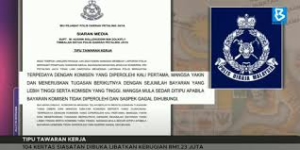Key Players Fighting Scams

YouTube Scam Fighter “Pierogi”
- Runs the “Scammer Payback” channel with 6.7 million followers
- Hacks into scammers’ devices, gathering information about their operations
- Uses voice-changing technology to pose as elderly victims
- Works with law enforcement to raid scam centers
- Helped raid a call center in Punjab, India, resulting in 32 arrests

Crypto-Helpline

- Founded by Nirmal Shah, a former scam victim
- Specializes in cryptocurrency fraud investigation
- Traces stolen crypto funds using blockchain tools
- Works with global law enforcement agencies
- Helped recover a Mumbai businessman’s $40,000 life savings
- Has investigated over 200 crypto scam cases

Organizations Rescuing Trafficking Victims

- Global Anti-Scam Organisation (GASO)
- Helps rescue people trapped in scam compounds
- Pressures local officials or negotiates with scam centers
- Has rescued over 500 victims since July 2021
- Humanity Research Consultancy (HRC)
- Helps victims escape fraud factories in Southeast Asia
- Works with willing politicians to negotiate releases
- Has helped over 70 people escape or return home
- Advocates for international sanctions against scam syndicates

Global Anti-Scam Alliance (GASA)

- Non-profit organization connecting stakeholders fighting scams
- Shares knowledge between policymakers and law enforcement
- Organized the Global Anti-Scam Summit in Lisbon
- Released study showing scammers stole $1.02 trillion globally between 2022-2023

Challenges in Fighting Scams

- Scammers quickly adopt new technologies like cryptocurrency and AI
- Law enforcement often lacks the skills to investigate these platforms
- Cross-jurisdictional issues make prosecuting criminals difficult
- Corruption among local officials who profit from protecting scam operations
- Tedious legal processes that delay recovery of stolen funds
The article highlights how these diverse organizations are bringing unique skills to fight scams while law enforcement catches up with evolving criminal tactics.
Analysis of Scams and Prevention in Singapore
Common Scams Mentioned in the Article

Based on the article, several types of scams are prevalent:
- Cryptocurrency fraud – Scammers pose as legitimate investment opportunities, set up fake trading platforms, and steal victims’ funds
- Human trafficking scams – People are lured with fake job offers and forced to work in scam compounds in Southeast Asian countries.
- Phone/call center scams – Often operated from overseas centers (like those in India), these scams target victims globally

The Scale of the Problem
The article provides some concerning statistics:
- Scammers stole an estimated $1.4 trillion (USD) globally between August 2022-2023
- In Singapore specifically, victims lost $660.7 million in 2022, up from $632 million in 2021
Singapore’s Prevention Efforts
The article mentions Singapore’s Anti-Scam Centre as a positive model that other countries should emulate. While not extensively detailed in the article, we can analyze Singapore’s approach to scam prevention:

Singapore’s Anti-Scam Framework
- Singapore Police Force Anti-Scam Centre
- Established in 2019 to coordinate responses to scam reports
- Works closely with banks to freeze suspicious accounts quickly
- Reportedly recovered about 35% of scammed monies in its first year
- Public Education Campaigns
- “Spot the Signs. Stop the Crimes” campaign
- ScamAlert website and app providing real-time information about scams
- Regular media updates on new scam tactics
- Regulatory Measures
- Mandatory SMS Sender ID Registry to reduce spoofed messages
- Partnerships with telecommunication companies to block suspicious calls
- Digital banking security measures like transaction limits and cooling periods
- Cross-Border Cooperation
- International collaboration with other law enforcement agencies
- The article mentions that Singapore’s Ministry of Foreign Affairs was involved in rescuing Singaporeans from scam compounds in Manila

Recommendations for Enhanced Prevention
Based on the article’s findings, Singapore could strengthen its anti-scam measures by:
- Increasing cryptocurrency fraud expertise
- Partner with organizations like Crypto-Helpline to build capacity in tracing crypto transactions
- Develop specialized units to investigate and recover digital assets
- Enhancing regional cooperation
- Work more closely with Southeast Asian nations to combat human trafficking for scam operations.
- Establish joint task forces specifically targeting scam compounds
- Technological solutions
- Implement AI systems to detect and block potential scam communications
- Develop better verification systems for online transactions
- Public-private partnerships
- Collaborate with financial institutions to implement stronger security protocols.
- Work with tech companies to develop better systems for identifying fraudulent websites and accounts.
- Protective measures for job seekers
- Strengthen verification processes for overseas job opportunities
- Create awareness specifically about job scams targeting Southeast Asians

The Importance of Global Action
As the Global Anti-Scam Alliance managing director Mr. Jorij Abraham emphasized in the article, effective scam prevention requires:

- A global network of anti-scam centers sharing information quickly
- Legislative changes to address root causes
- Improved cooperation between countries to pursue and prosecute scammers
- Sanctions against individuals and organizations running large-scale scam operations
Singapore’s model could be expanded regionally, with its Anti-Scam Centre serving as a hub for coordinated responses across Southeast Asia.
SEA Anti-Trafficking Drive
As Malaysia prepares for its upcoming chairmanship of ASEAN in 2025, the nation is poised to utilize this significant role as a platform for advocating more stringent regional measures against job scams, human trafficking, and online fraud. This initiative comes at a time when an alarming number of Malaysians have been lured by enticing promises of lucrative job opportunities only to find themselves trapped in exploitative situations, often forced into labor within clandestine scam operations run by criminal organizations.
Despite the growing alarm surrounding these fraudulent practices, Malaysia remains committed to a diplomatic resolution. Instead of issuing travel warnings, the government is focusing on raising awareness  among potential travellers while fostering cross-border collaboration aimed at rescuing victims and dismantling these nefarious networks.
among potential travellers while fostering cross-border collaboration aimed at rescuing victims and dismantling these nefarious networks.
In this regional approach to combating job scams, Malaysia seeks not just to protect its citizens but also to foster a united front among ASEAN nations. The aim ispreciser: to create a safer environment where individuals can pursue legitimate employment opportunities without falling prey to deceptive schemes. Through increased cooperation and proactive measures, Malaysia hopes to turn the tide against these fraud syndicates and ensure that justice prevails for those who have suffered at their hands.
In a recent session of Parliament, the spotlight fell on the troubling phenomenon of job scams plaguing Malaysia, prompting a significant discussion led by Mohamad. He articulated the pressing need for a measured and nuanced response, particularly in light of Malaysia’s diplomatic ties with neighbouring Thailand and Myanmar. As public anxiety about these scams continues to surge, Mohamad reassured that the government intends to leverage the frameworks provided by ASEAN to navigate this complex issue.

The backdrop to this dialogue was the ASEAN Foreign Ministers’ Retreat, which took place on January 18-19 in Langkawi. This retreat served as an essential platform for member nations to strategize collaborative efforts against the dual threats of human trafficking and financial fraud. This gathering not only fostered dialogue but also set the stage for enhanced cooperation among ASEAN countries, with a shared goal of tackling these pervasive challenges.

Mohamad expressed a firm commitment to addressing the job scam crisis through every avenue at Malaysia’s disposal. “We will engage fully with ASEAN initiatives and pursue bilateral partnerships with the countries directly impacted by these scams,” he asserted. In his remarks, he underscored the proactive measures being taken by Malaysian embassies situated in Yangon and Bangkok. These diplomatic missions are working tirelessly alongside local authorities, striving to track down victims of these scams and facilitate their safe return home.
As Malaysia navigates this intricate web of international relations and domestic concerns, the concerted efforts to combat job scams highlight a broader commitment to protecting its citizens and fostering regional solidarity.
The Rising Shadow of Scam Syndicates: Stories of Victims and Rescues
As of January 21, 2025, a troubling narrative unfolds from the heart of Southeast Asia, where the plight of scam syndicates has ensnared many unsuspecting individuals. Government reports reveal that 114 Malaysians have been rescued from the clutches of these nefarious networks in Myanmar, while another 157 have found their way back from Thailand. Yet, the story remains incomplete and harrowing—140 Malaysians are still missing in Myanmar, alongside 14 others thought to be trapped in Thailand. Authorities are increasingly concerned that some of those who were once victims may now be entrenched within these criminal organizations, potentially even assuming roles of authority that deter them from seeking a way home.

The Malaysian government has faced significant challenges in addressing this crisis. Reports indicate discrepancies in the number of missing persons; some individuals who were initially reported as lost may have returned without notifying officials, further complicating rescue efforts. This murky situation leaves law enforcement agencies struggling to piece together the true scope of the problem and effectively locate those still in peril.
Amidst this chaos, a poignant scene unfolded on February 12, as recently liberated individuals—hailing from various nations—made their way toward safety. These brave souls, who had been deceived or trafficked into working at scam centers in Myanmar, gathered at the banks of the Moei River, ready to cross into Thailand’s Tak province. As they took tentative steps toward freedom, their eyes reflected a mix of relief and trepidation—a powerful reminder of the resilience of the human spirit even in the face of overwhelming adversity.
Understanding the operations of these syndicates and the plight of their victims reveals a complex web of deceit and desperation that continues to affect countless lives across the region.

Unraveling the Operations of Job Scam Syndicates
In the shadowy corners of northern Myanmar, where the grip of the central government wanes, a different kind of power emerges. Here, in territories dominated by armed ethnic factions, organized crime thrives, creating a perilous landscape for unsuspecting individuals seeking better opportunities. These regions have transformed into refuge spots for job scam syndicates, allowing them to operate with impunity and exploit the vulnerable.

These unscrupulous organizations often entice hopeful workers with promises of high-paying jobs that shimmer like mirages on the horizon. Yet, once these individuals cross the border, the reality shatters; they find themselves ensnared in a web of deception and forced into illicit activities. Many are coerced into participating in online scams aimed at scamming victims from around the globe. The dark truth is that these victims frequently endure harrowing experiences, facing physical mistreatment and living under constant surveillance, which stifles any hope of escape without the aid of outside forces.
Malaysia’s Position on Travel Advisories
Despite the lurking dangers associated with travel to these regions, Malaysia has chosen not to issue a formal travel advisory for its citizens contemplating journeys to Thailand and Myanmar. Mohamad, a government spokesperson, underscored this stance, suggesting that while awareness of potential risks is crucial, the government believes that the situation does not warrant an official warning at this time.
Malaysia’s Approach to Travel Warnings and Job Scams
In a landscape fraught with risks, Malaysia has made a notable decision: it has refrained from issuing a travel advisory for its citizens planning to visit Thailand and Myanmar. Mohamad articulated this stance, which reflects a deliberate choice by the government to prioritize preventive strategies over official warnings. The focus, he explained, is on raising public awareness regarding job scams that have been troubling many unsuspecting individuals.

Mohamad pointed out that declaring an official travel warning could potentially jeopardize diplomatic relationships and complicate ongoing efforts to repatriate victims of these scams. His remarks underline the delicate balance that governments must maintain between safeguarding their citizens and nurturing international relations.
Meanwhile, opposition voices have called for a more stringent approach to tackle these issues. However, the Malaysian government remains resolute in its commitment to finding solutions through ASEAN-led initiatives. The cooperation fostered by ASEANAPOL, the ASEAN Police Organization, is anticipated to significantly improve the sharing of intelligence and coordination of law enforcement activities aimed at combating human trafficking and fraudulent job schemes.
The alarming rise in the number of individuals falling prey to job scams has underscored the critical need for a unified regional response. Malaysia is poised to utilize its role as ASEAN Chair in 2025 as a strategic diplomatic lever in this fight against human exploitation and fraud networks. By fostering collaboration with neighbouring countries and placing victim protection at the forefront of its agenda, Malaysia seeks to diminish the reach and power of organized crime within the region.
Through comprehensive public awareness initiatives, active diplomatic engagement, and enhanced law enforcement partnerships, Malaysia envisions a future where incidents of job scams are significantly reduced. The government’s proactive measures aim not only to safeguard its citizens but also to ensure their safe return when they fall victim to such malicious schemes. Strengthening policies across ASEAN and bolstering regional security frameworks will be paramount in addressing this intricate challenge head-on.

As the nation navigates these complexities, it remains committed to creating a safer environment for its citizens while playing a pivotal role in regional stability and security. The journey ahead may be challenging, but Malaysia’s resolve to combat human trafficking and fraud shines through as it charts a path toward a more secure future for all its people.
Maxthon: Your Reliable Partner in the Digital Journey
In today’s world, where our daily routines are deeply intertwined with the online realm, protecting our digital identities is more important than ever. Imagine embarking on an exciting adventure through the vast and largely uncharted regions of the internet, where each click uncovers a wealth of knowledge and thrilling experiences. However, amidst this expansive digital landscape, hidden dangers lurk that can jeopardize your personal information and overall safety. To navigate this intricate web with confidence, it is essential to select a browser that prioritizes your security. This is where Maxthon Browser comes into play—your loyal ally on this journey, and the best part? It’s entirely free.

What distinguishes Maxthon from traditional web browsers is its steadfast focus on safeguarding your online privacy. Think of it as a vigilant protector constantly on the lookout for the various threats lurking in the digital wilderness. Equipped with an impressive array of built-in features—such as ad-blockers and anti-tracking tools—Maxthon diligently works to protect your online identity. As you explore the internet on your Windows 11 device, these protective measures create a robust defense against annoying ads and stop websites from tracking your browsing habits.
As you traverse the rich landscape of the digital world on your Windows 11 device, Maxthon’s commitment to privacy becomes increasingly apparent. Advanced encryption methods safeguard your sensitive information during your online journeys. This ensures that while you navigate the unexplored corners of cyberspace, you can engage in your digital pursuits with peace of mind, knowing that your data remains secure from prying eyes.
On this quest for knowledge and exploration, let Maxthon be your reliable navigator, illuminating the path through the shadowy areas of the internet while ensuring your digital presence remains protected.
